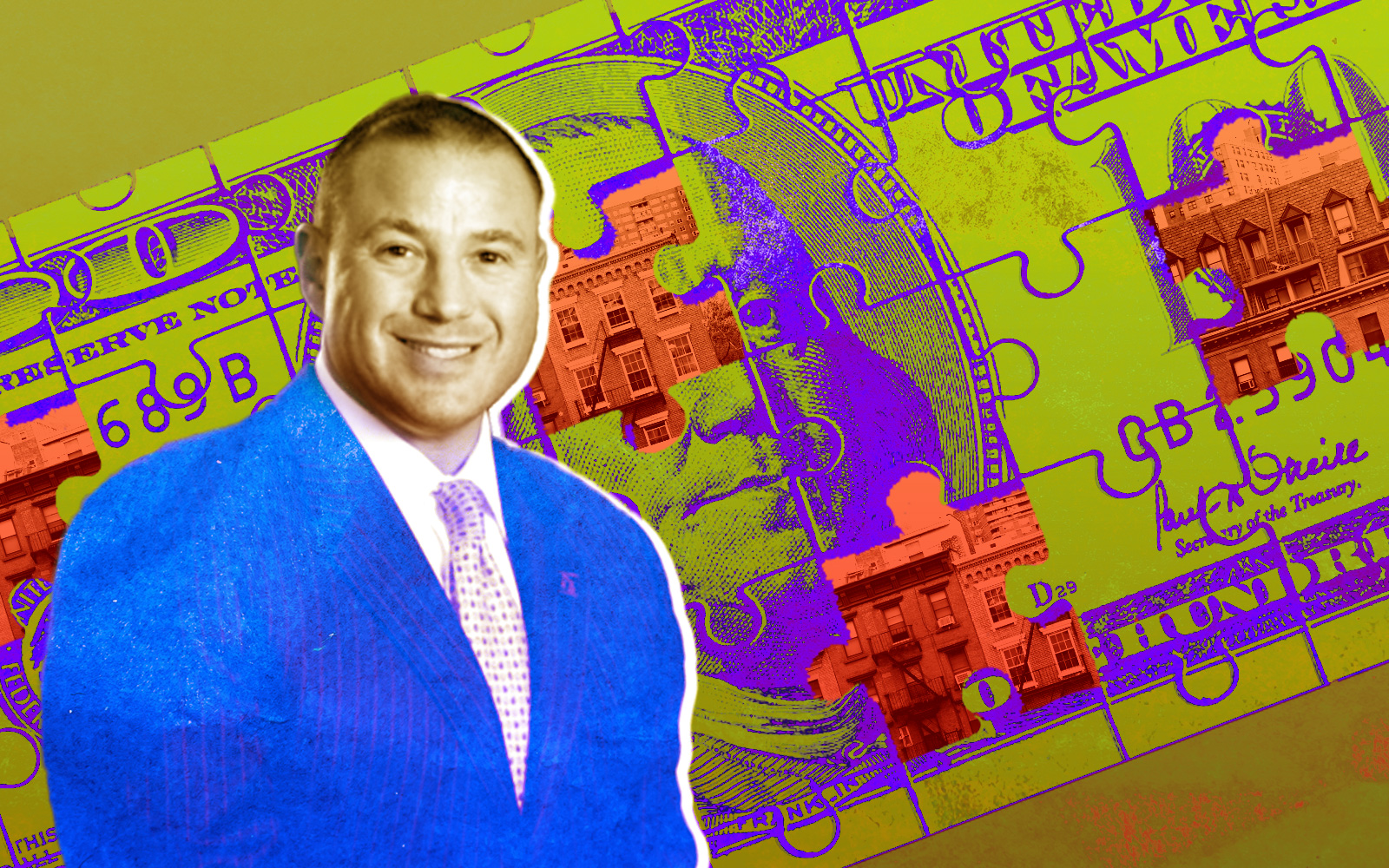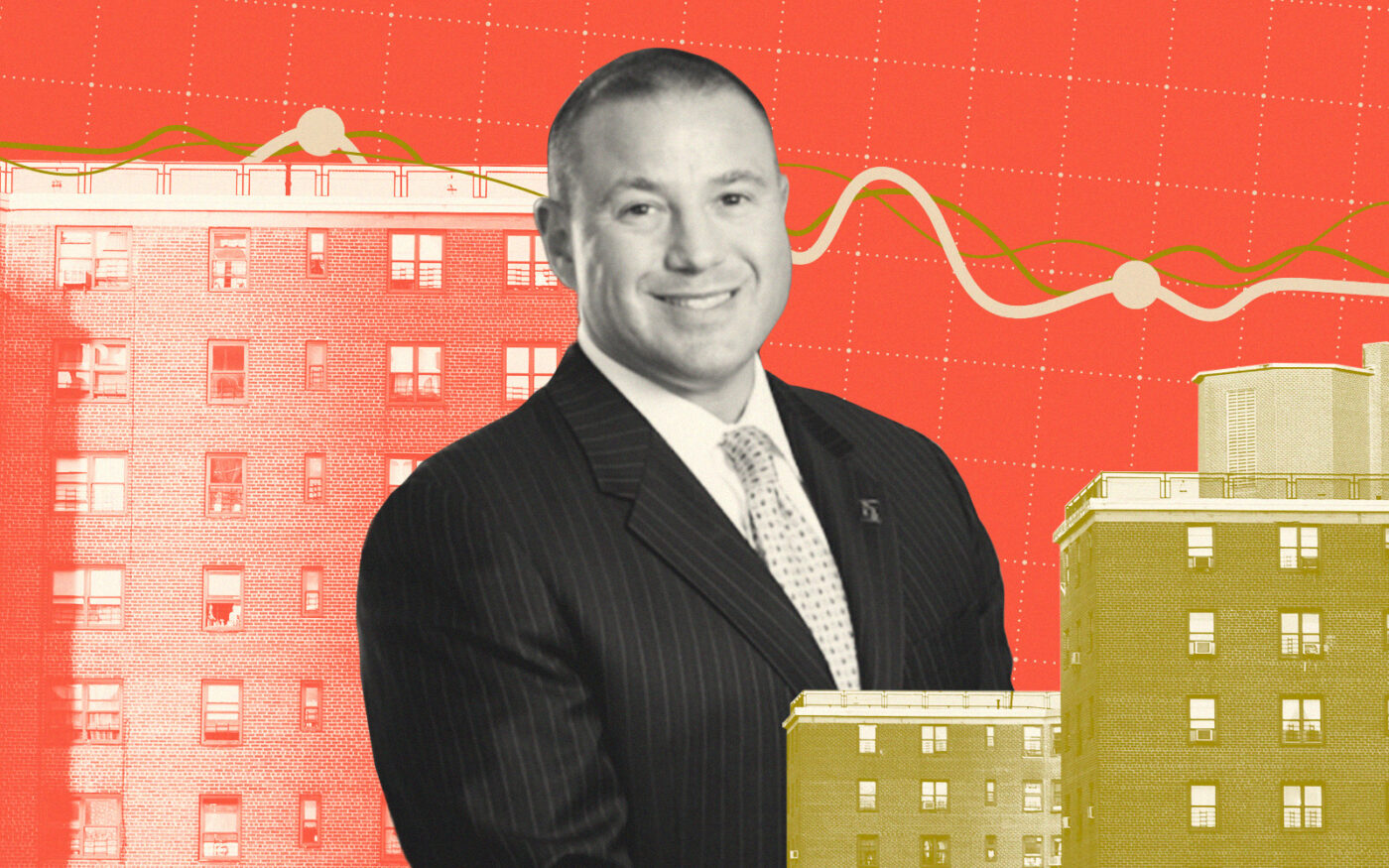New York Community Bank in the second quarter of 2023 reported a jump in distressed debt, driven primarily by multifamily mortgages and non-real estate loans.
CEO Thomas Cangemi said the firm’s recent acquisitions — its late-2022 merger with Flagstar Bank and first-quarter purchase of $13 billion post-collapse Signature Bank loans — drove the uptick and emphasized the health of the firm’s original loan book.
“Overall [non-performing assets] were flat, when you take out the acquisitions,” Cangemi said on a Thursday morning earnings call.
“We’re not seeing any late pays; we’re not seeing any delinquencies on multifamily,” Cangemi added.
But NYCB earnings show a growing crop of multifamily delinquencies. A deeper look reveals those late pays were likely driven by the firm’s multifamily loans pre-acquisitions, debt that is mostly held by rent-stabilized landlords.
Multifamily debt marked non-performing — 90 or more days past due — jumped 154 percent to $33 million in the second quarter of 2023 compared to the first.
The firm’s acquisition of Flagstar in December added $17 billion in loans to NYCB’s portfolio but the majority of those were residential mortgages and commercial real estate loans, excluding multifamily.
In a fourth-quarter earnings release, NYCB noted the uptick in multifamily loans was mostly due to “organic growth at legacy New York Community.”
NYCB notably passed on the opportunity to pick up Signature’s commercial real estate loans, many of which were rent-stabilized multifamily, when the firm acquired a portion of the failed bank’s loan book this spring.
The snub led industry observers to label the CRE debt “toxic.”
Rent-stabilized valuations have plummeted after the 2019 rent law effectively restricted revenue growth to the low-single-digit increases typically approved by the rent guidelines board each year. Amid rising expenses, some stabilized landlords have struggled to make loan payments and have opted to offload their properties at a discount before loans come due.
Soaring interest has also been a bugbear for multifamily landlords with floating-rate debt.
Cangemi stressed the bank’s landlord borrowers have been “resilient” in the face of rising rates.
“They’re paying their bills,” he said. “These are wealthy customers that have large portfolios and they’re weathering the storm.”
The firm noted no office loans were more than 90 days late in a second quarter slide deck. Office accounts for a quarter of the bank’s total commercial real estate loans.
Still, NYCB reported commercial real estate loans 30 to 89 days past due had surged 880 percent to $147 million in the second quarter, compared to the first.
NYCB also reported no recent office net charge-offs — debt unlikely to be recovered. But banks can conceal bad debts if they don’t reappraise properties, marking those loans to market value.
Office valuations in New York fell 17 percent in 2022 from 2021 amid the pandemic’s hit to leasing demand and occupancy rates, according to a report by state Comptroller Thomas DiNapoli.
NYCB said it had reappraised about 39 percent of its office portfolio between 2022 and 2023 and since marked 16 percent of its $3.4 billion office loan book as special mention — at risk of non-payment — or substandard.
The firm increased its allowance for credit losses or the estimate of debt unlikely to be recovered to $594 million in the second quarter, an 8 percent jump over the first quarter and 1250 percent increase from the same period last year.
Amid the underlying threats to multifamily and office, the firm’s acquisition of Signature buoyed profits.
NYCB raked in about $900 million in net interest income in the second quarter, a 62 percent increase over the first and boosted its share of non-interest bearing deposits. Combined, the growth increased net interest margin — interest earned minus interest paid — to 3.21 percent, a 61 basis point jump over the first quarter.
NYCB reported diluted earnings of $0.55 per share, 104 percent above first quarter profits.
Read more



